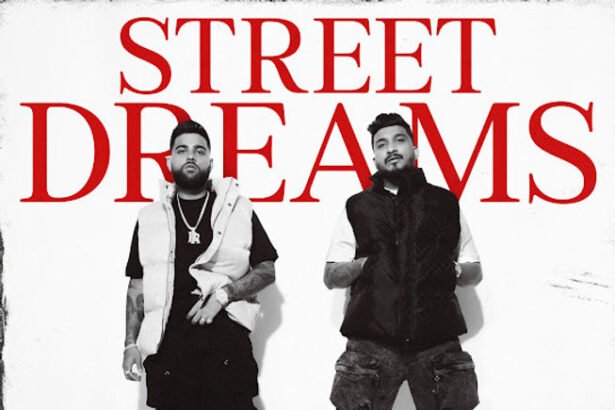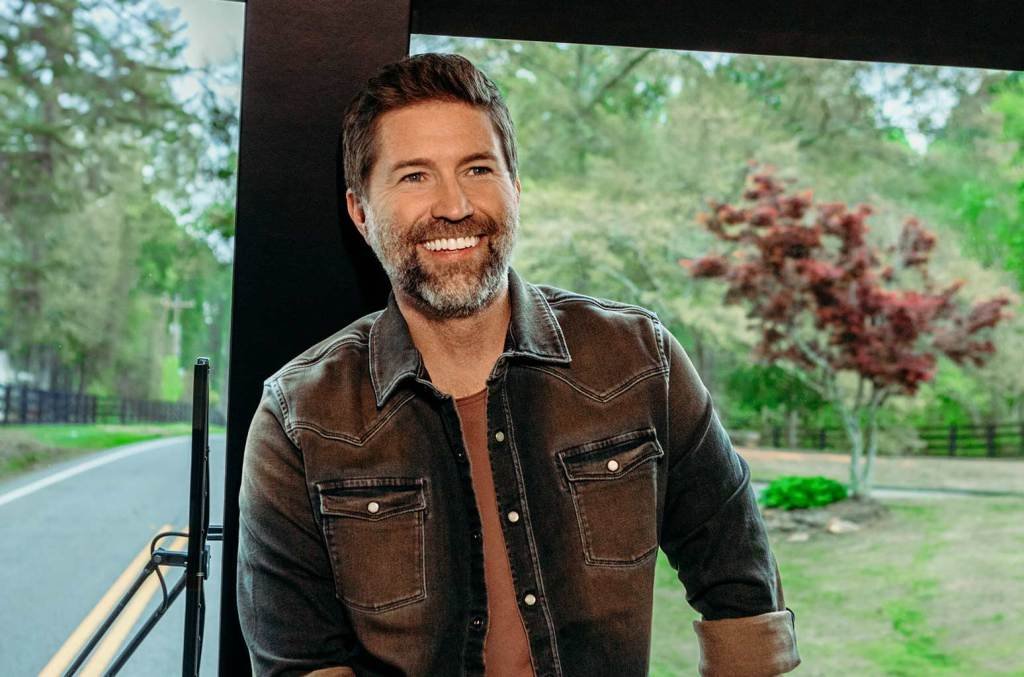In 2003, Josh Turner made his first foray onto Billboard’s Country Airplay chart with “Long Black Train,” a musical allegory of thwarting spiritual temptation that Turner was inspired to write while a student at Nashville’s Belmont University, after spending a night among dusty library book stacks, imbibing a 10-disc box set of Hank Williams Sr. songs. Turner’s bourbon-smooth, commanding bass voice immediately demanded the country music industry’s attention.
Roughly two decades later, the title track and cornerstone of his 10th studio album This Country Music Thing, out Friday (Aug. 16) on UMG Nashville, takes stock of the South Carolina native’s career since then: a quartet of No. 1 Country Airplay hits including “Your Man” and “Would You Go With Me,” membership into the Grand Ole Opry, and a string of nominations from the Grammys, CMA Awards, and ACM Awards.
When Turner and producer Kenny Greenberg began working on the album, the title track was the first Greenberg wanted for the project.
“I was surprised that Kenny wanted to put it on the record,” Turner tells Billboard, seated in a conference room at UMG Nashville. “I was like, ‘It’s kind of braggadocious on my part,’ and he was like, ‘That’s what I love about it. It’s like a rap song, kind of like, “Look at what I’ve done.’”
“I’ve always wanted longevity in this business,” Turner adds. “I feel like I have a lot of gas left in the tank, but it’s cool where I’m at because I can not only look forward, but I can look and see what I’ve accomplished. It’s far beyond what I imagined growing up. Nashville’s been good to me. I always say the music’s been good to me and I try to be good back to it.”
Amidst the scope of burnished love songs that Turner has made his calling card, the title track and a few others from the new album delve deeper into his journey.
Though Turner lived in Nashville for 25 years, his new album’s opening track, “Down in Georgia,” nods to his family’s recent relocation to Georgia.
“It was hard to leave,” Turner says. “This is where I went to school. It’s where I got my record deal, where I met my wife [Jennifer] and we had our four boys. But on the other hand, I just felt like I needed a change of scenery and I’ve just watched the Lord clear a path for that. The bus can still pick me up at my house, and it’s not far from Nashville if I need to drive to the Atlanta airport to fly wherever I need to go. And I have my own space down there to write.”
The album closes with one of the project’s strongest tracks, another Turner solo write and a tribute to his grandfather, called “Unsung Hero.”
In 2014, Turner drove to South Carolina for a family get-together at his uncle’s home. Turner says that at the time he was diving deeper into the life of his late grandfather—a World War II veteran who had joined the Army in 1942– and he knew his uncle had once had possession of Turner’s grandfather’s Purple Heart.
“I was digging into my granddaddy’s story, because when he was living, he never really talked about it. He got shipped off to Europe where his medical battalion followed a tank battalion around France and Germany. So I asked my uncle if I could see my grandfather’s Purple Heart and he showed me all the stuff he kept—and he couldn’t find the Purple Heart,” Turner says with a slight chuckle. “I just wanted to strangle him right then and there—how do you lose a Purple Heart?”
Of the items his uncle had, a form letter from President Truman thanking Turner’s grandfather for his service stood out.
“It just sat in a dresser drawer his whole life. He never got rid of it, but he lived for decades after the war and raised a family. I’d never heard him utter a word about any of it,” Turner says. “I started writing one day and it just started flowing out of me—it just meant a lot that I could do a tribute like that to him publicly.”
Throughout his career, Turner has also paid homage to his musical forebears, featuring John Anderson, Ralph Stanley, and Diamond Rio on his sophomore album, and artists including Ricky Skaggs and Marty Stuart on 2012’s Punching Bag. On his new project, the title track features Turner singing snippets of classic songs including Anderson’s “Seminole Wind,” Randy Travis’ “Diggin’ Up Bones,” Dolly Parton’s “9 to 5,” and the Conway Twitty/Loretta Lynn collaboration “Louisiana Woman, Mississippi Man.”
The upcoming Peter Zavadil-produced music video for another album cut, “Two Steppin’ on the Moon,” features artists who had their own “Moon” hits. Originally, the video treatment involved having Brooks & Dunn’s Ronnie Dunn sitting in a corner of a bar by himself in homage to B&D’s “Neon Moon” clip. When Brooks & Dunn couldn’t make the video shoot due to scheduling, he featured Travis (“Honky Tonk Moon”), The Gatlin Brothers (“Talkin’ to the Moon”), Anderson (“Mississippi Moon”), and Shenandoah’s Marty Raybon (“Moon Over Georgia”), all gathered around a table and discussing music and life.
“It was one of those moments where it’s like, ‘Okay, I’ve made it,’” Turner says. “I was literally just telling myself, ‘Just appreciate this moment, because I may never get this moment again.’ Just having all those guys together, sitting around a table and cutting up, knowing that it was in a music video is something that I’ll be able to cherish for years because you never know how much time these guys have left.”
Over the past 20 years, music fans’ avenues for consuming music have shifted dramatically with the rise of streaming and social media, which has impacted terrestrial radio. Turner hasn’t released a single to country radio since promoting his 2017 album Deep South; over the past few years, he’s released a gospel album, a holiday album, and a project of country music covers. He doesn’t have a song from his new album at country radio at present.
“My mindset [about radio] from early on in my career is that I don’t want the [label radio] promo department telling me how to make a record, and I don’t want to tell them how to promote a record at radio,” Turner says. “About 98% of the time, I’ve let them make the choice on what song needs to be the single.”
“The business has changed, and we’ve found ways to have success without having to bend over backward to country radio, which is a great thing,” Turner continues. “I feel like over the years, country radio had been given way too much control. I think they have a huge place in our business, but to have the control and say that they’ve had for so long — I think it wasn’t balanced. I’m glad there are ways artists can succeed without having to go through one gate, because that doesn’t work for everybody, and there are a lot of fans out there with different tastes and opinions.”
At this junction in his career arc, the 46-year-old Turner has established himself as an artist whose commercial success has translated into an enduring impact on generations of artists who have followed in his footsteps—and with the spectrum of country music as open as ever, he’s bullish on several artists’ music.
“I just inducted Scotty McCreery into the Opry and I’m very proud of the way he’s carried himself. Lainey Wilson’s just knocking down doors and blazing a trail. Drake Milligan’s good, and Cody Johnson’s keeping it traditional and staying true to who he is as an artist. I respect that, and that’s what we need — instead of artists who do everything their label tells them to do. I feel like those artists end up having a lot of regrets, and I’ve heard them voice those regrets in the past, too. I don’t ever want to be in that position where I release so much control and so much of the decision-making to somebody else that I’m not happy with the result.”














